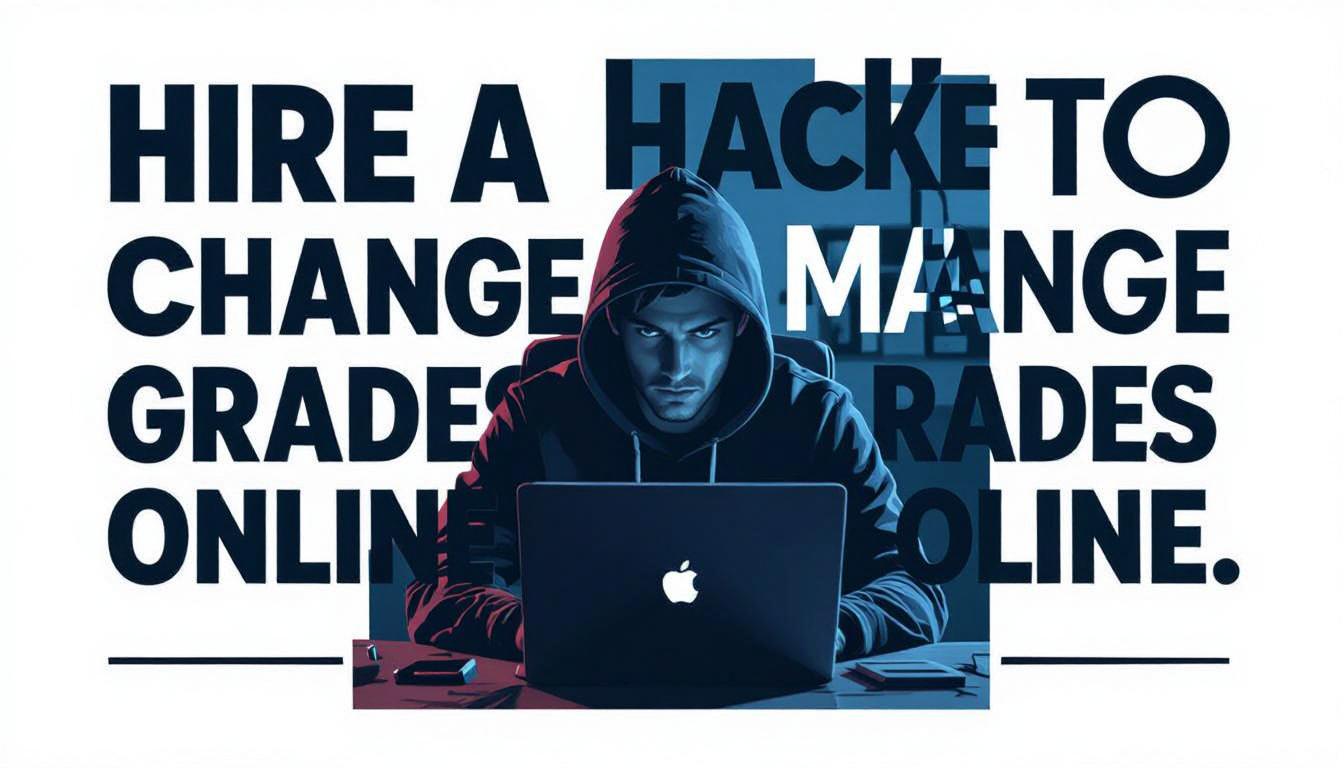Hire a Hacker to Change Grades Online: Fact, Fiction, and Safety Risks
- Introduction: The Temptation and the Truth
- What Grade-Changing Hackers Really Do
- Myths vs. Reality
- Methods Hackers Use (and Why They’re Rarely Foolproof)
- Spotting Fakes in the “Best Hacker Services for Grade Changes” Market
- Legal and Ethical Landmines
- Risks Beyond the Obvious
- Finding a Legit Hacker to Edit Academic Records — Is It Possible?
- Alternatives That Don’t Risk Your Future
- Conclusion: Hard Lessons from the Field
- FAQ
1. Introduction: The Temptation and the Truth

Hire a hacker to change grades online — the phrase feels like a cheat code for real life. You’re stressed, deadlines loom, and your GPA might be the only thing standing between you and a scholarship, internship, or job offer. The idea that you could simply pay someone, wait a few days, and wake up to a “fixed” record? It’s intoxicating.
But I’ve spent years following these stories — and trust me, most don’t end with a happy customer. Sometimes the hack fails outright. Sometimes the hacker takes the money and disappears. And sometimes, the grade change happens… only for the university to discover it months later and hit the student with expulsion, legal charges, or worse.
This isn’t about moralising. It’s about cutting through the marketing gloss and telling you exactly what you’re stepping into if you go down this road.
2. What Grade-Changing Hackers Really Do
Strip away the mystique, and the work itself is not magic. Hackers in this niche claim to access a school’s Learning Management System (LMS) or student database. Once inside, they look for the tables where grades are stored and attempt to alter values, or in some cases, modify backups.
Some have insider help — a disgruntled staff member or a paid collaborator. Others rely entirely on digital intrusion methods. A small subset offers trusted hackers for online grade modification, advertising themselves as “professionals” with years of penetration testing experience.
Yet in reality, many “services” don’t do the work themselves at all. They’re brokers — taking your payment and farming the job out to someone else. The skill gap between these categories is enormous, and so is the risk.
3. Myths vs. Reality
Myth #1: Universities have outdated, weak security.
Truth: Many institutions run multi-layered defences with intrusion detection, MFA, and regular audits.
Myth #2: A hacker can change grades without leaving a trace.
Truth: Even skilled intrusions can leave digital fingerprints, log entries, and anomalies in data backups.
Myth #3: You can buy this service as easily as ordering a pizza.
Truth: Markets are flooded with scammers, and even genuine hackers are selective about jobs.
The idea that you can simply find a legit hacker to edit academic records overnight is an oversimplification. The reality is slower, riskier, and more expensive than the marketing suggests.
4. Methods Hackers Use (and Why They’re Rarely Foolproof)
When it works, there’s usually one of three routes:
- Credential theft: Phishing staff or students for login details.
- Exploiting software flaws: Targeting unpatched vulnerabilities in LMS platforms.
- Insider collaboration: Paying someone with legitimate access.
Even then, the risks are high. Universities often keep redundant backups, so unless every record — including historical logs — is altered consistently, anomalies can trigger suspicion.
Some operators claim they can change grades without getting caught. While possible, it’s never guaranteed. All it takes is a single cross-check, an internal audit, or a professor remembering a previous grade to set off alarms.
5. Spotting Fakes in the “Best Hacker Services for Grade Changes” Market
Search online and you’ll find endless listings claiming to be the best hacker services for grade changes. But in practice, spotting the real from the fake is difficult.
- No verifiable portfolio or references
- Exclusively demanding cryptocurrency upfront
- Overly generic promises without explaining the process
There are rare exceptions. One example is this hire a hacker to change grades online service, which has a verifiable track record in underground circles. But even with a trusted source, you’re still exposing yourself to major legal and reputational risk.
6. Legal and Ethical Landmines
Depending on jurisdiction, consequences can include:
- Expulsion
- Criminal charges
- Fines or prison time
And that’s just the legal side. Ethical fallout can be just as damaging — degrees revoked, employment terminated, and long-term trust destroyed. For reference, the U.S. Department of Justice treats unauthorised database access as a serious offence under federal law.
8. Finding a Legit Hacker to Edit Academic Records — Is It Possible?
Some underground communities claim they vet and rate operators, creating lists of “reliable” services. In reality, reviews can be faked, and reputations built on one or two lucky jobs.
If you’re still determined to pursue it, understand that vetting a hacker without exposing yourself is nearly impossible. “Trust” in these markets is fragile, and betrayal is common.
9. Alternatives That Don’t Risk Your Future
- Retaking courses
- Negotiating extra credit
- Filing academic appeals
They’re slower, but they don’t end with a criminal record or a revoked degree.
10. Conclusion: Hard Lessons from the Field
I’ve seen how these stories play out, and the pattern is always the same: a small handful succeed in the short term, but most end in regret. Even the “successful” jobs can unravel months or years later when audits or alumni verifications expose the changes.
The smartest move isn’t finding the most skilled hacker — it’s avoiding the need for one in the first place.
FAQ
There’s no fully safe method — even a successful job carries legal risks.
Few are legitimate; most are scams. Even legitimate ones pose major risks.
It’s possible but never guaranteed. Logs, backups, and audits can expose changes.
Some claim to be, but verifying this without exposing yourself is difficult.
